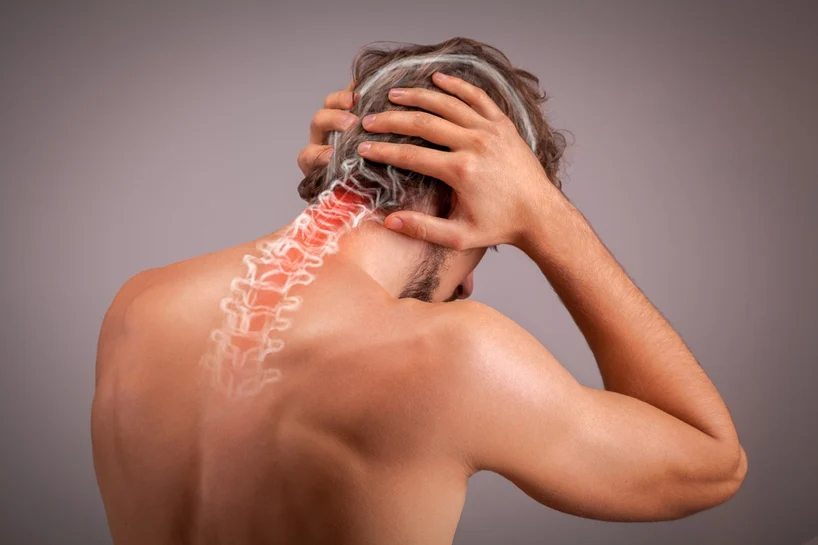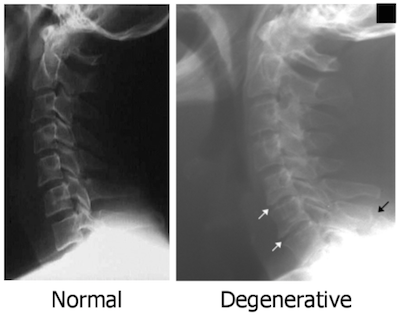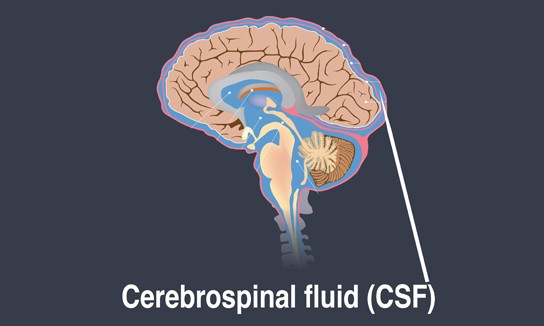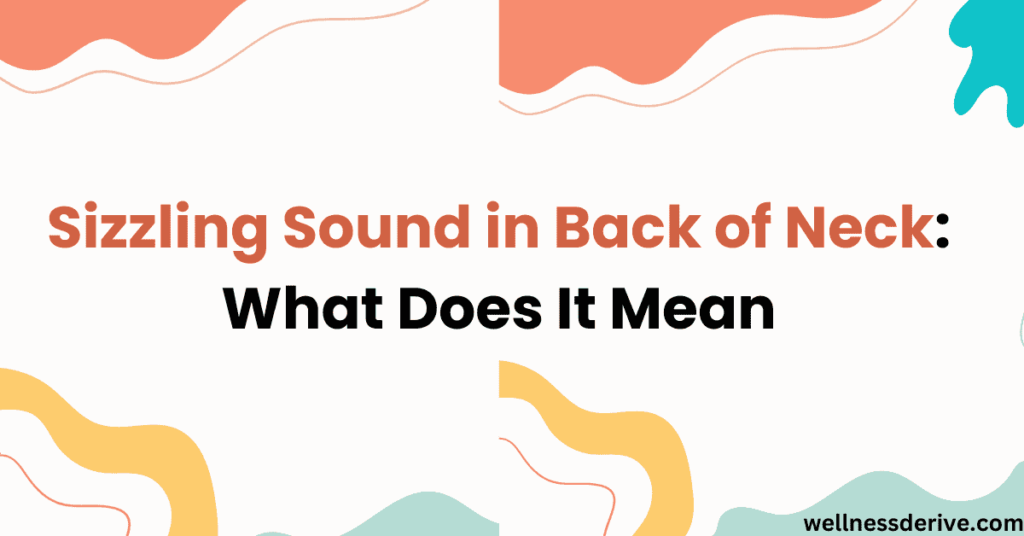A sizzling sound in the back of the neck can be unsettling, leaving many wondering about its cause and whether it signals a serious health issue. This phenomenon, often described as crackling, fizzing, or popping, can occur during neck movements, such as turning the head or stretching. While it is often harmless, in some cases, it could indicate an underlying condition.
Common Causes of Sizzling or Crackling Sounds in the Neck
The sounds in your neck can stem from various factors, ranging from normal joint activity to more concerning issues. Let’s explore the common causes:
1. Gas Bubbles in Synovial Fluid

- The neck joints are surrounded by synovial fluid, which lubricates them for smooth movement.
- When you move your neck, small gas bubbles can collapse, creating a sizzling or crackling sound.
- This is similar to the “popping” sound when cracking knuckles and is generally harmless.
2. Joint Degeneration (Arthritis)

- Osteoarthritis can cause cartilage breakdown, leading to friction between bones.
- This friction may result in a crunching sound in the neck, especially during movement.
- Symptoms like stiffness or pain often accompany these noises.
3. Ligament or Tendon Movement

- Tendons and ligaments in the neck may rub over bony surfaces or snap into place, causing a crackling noise.
- This is usually harmless but may indicate tight or strained muscles.
4. Cervical Spine Issues

- Problems in the cervical spine, such as cervical spondylosis or disc degeneration, may contribute to sounds when moving the neck.
- These issues can sometimes lead to associated symptoms like pain, dizziness, or limited range of motion.
5. Fluid or Pressure Changes

- Some people describe hearing a cerebrospinal fluid sound in the neck, which may result from changes in fluid pressure or circulation.
- If accompanied by dizziness or headache, it may require medical attention.
Symptoms Accompanying Sizzling or Crackling Sounds in the Neck
While occasional neck sounds are normal, certain symptoms may indicate an underlying issue:
- Pain or Stiffness: Persistent discomfort when moving the neck.
- Headaches: Pressure or pain in the head, often linked to neck movement.
- Dizziness: A feeling of lightheadedness or balance issues when the neck crackles.
- Limited Range of Motion: Difficulty turning or moving the neck freely.
- Numbness or Tingling: Sensations radiating down the arms or shoulders.
If you experience these symptoms, it’s essential to consult a healthcare professional for evaluation.
Is the Sizzling Sound in the Neck Harmful?
In most cases, neck sounds are not harmful and result from normal joint and muscle movement. However, if the sounds are frequent, painful, or accompanied by other symptoms like dizziness or numbness, they may indicate:
- Joint Damage: Such as arthritis or cartilage degeneration.
- Spinal Issues: Including herniated discs or misalignment.
- Muscle Strain: Overuse or tightness in the neck muscles.
How to Address a Sizzling Sound in the Neck
1. Adjust Your Posture
- Poor posture is a common cause of neck strain, leading to cracking noises.
- Practice good posture by keeping your head aligned with your shoulders and avoiding slouching.
2. Perform Gentle Neck Stretches
- Regular stretching can relieve tension and improve neck mobility.
- Examples include:
- Neck Tilts: Slowly tilt your head side to side.
- Neck Rotations: Gently rotate your head in circular motions.
3. Stay Hydrated
- Keeping joints hydrated can improve the health of synovial fluid, reducing crackling sounds.
4. Strengthen Neck Muscles
- Strengthening the muscles around the cervical spine can improve stability and reduce excessive movement, which may cause sounds.
5. Use Heat or Ice Therapy
- Apply a warm compress to relax muscles or an ice pack to reduce inflammation if pain accompanies the sounds.
6. Limit Repetitive Movements
- Avoid over-rotating your neck or engaging in repetitive motions that may strain joints and ligaments.
When to See a Doctor
Seek medical attention if the sizzling sound in your neck is accompanied by:
- Persistent pain or discomfort.
- Neurological symptoms like numbness, tingling, or weakness.
- Frequent dizziness or headaches.
- Limited range of motion that affects daily activities.
A healthcare provider may recommend imaging tests such as X-rays, MRIs, or CT scans to determine the cause.
FAQs About Neck Sounds
1. Why Does My Neck Sound Crunchy When I Move It?
The crunchy sound is often caused by gas bubbles in synovial fluid or ligaments moving over bony structures.
2. Is It Normal to Hear a Crackling Sound in the Neck?
Occasional crackling is normal, but frequent or painful sounds should be evaluated by a doctor.
3. Can Poor Posture Cause Neck Sounds?
Yes, poor posture can strain neck muscles and joints, contributing to crackling or popping noises.
4. What Is the Crackling Noise in My Neck When I Turn It?
This may result from joint movement, fluid shifts, or ligament adjustments.
5. How Can I Prevent Neck Crackling?
Practice good posture, perform regular neck stretches, and avoid repetitive strain on the neck.
Conclusion
A sizzling sound in the back of the neck can be caused by normal joint activity, such as gas bubbles in synovial fluid, or more serious conditions like arthritis or cervical spine issues. While occasional sounds are usually harmless, persistent noises accompanied by pain or other symptoms should be evaluated by a healthcare provider.
To keep your neck healthy, focus on maintaining good posture, staying hydrated, and incorporating gentle stretches into your routine. If you’re concerned about neck sounds, consult a medical professional for proper diagnosis and treatment.
Disclaimer: The content on Wellness Derive is for informational purposes only and not a substitute for professional medical advice, diagnosis, or treatment. Always consult a healthcare provider for medical concerns.



